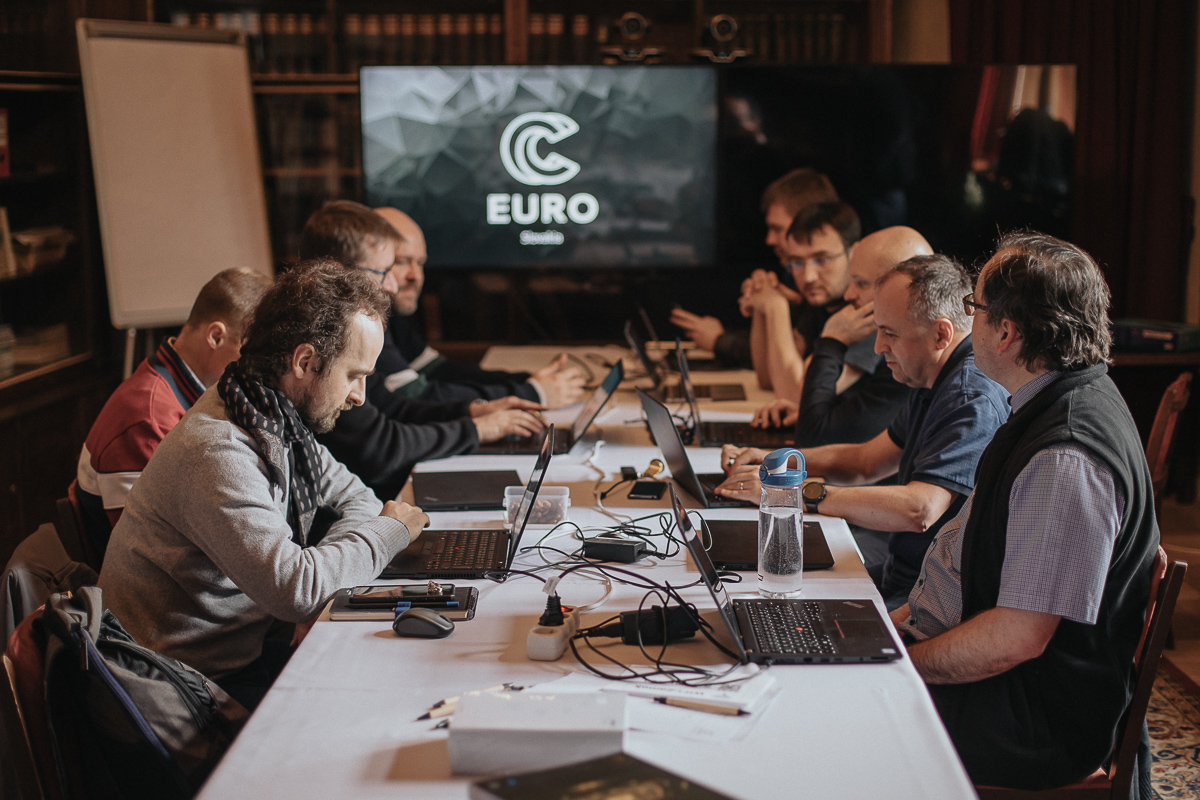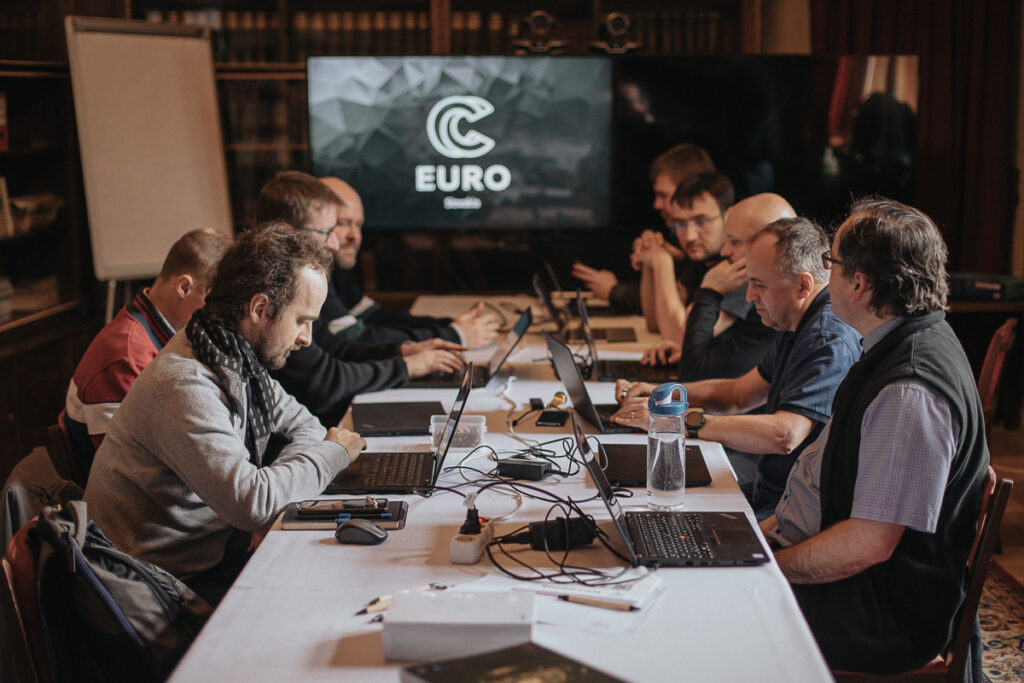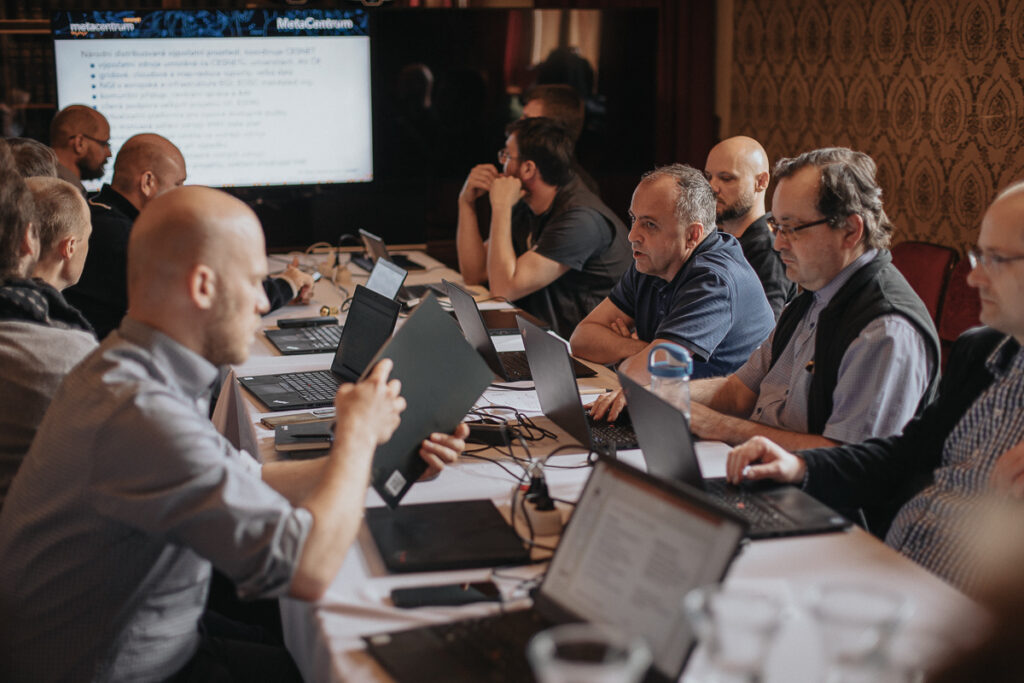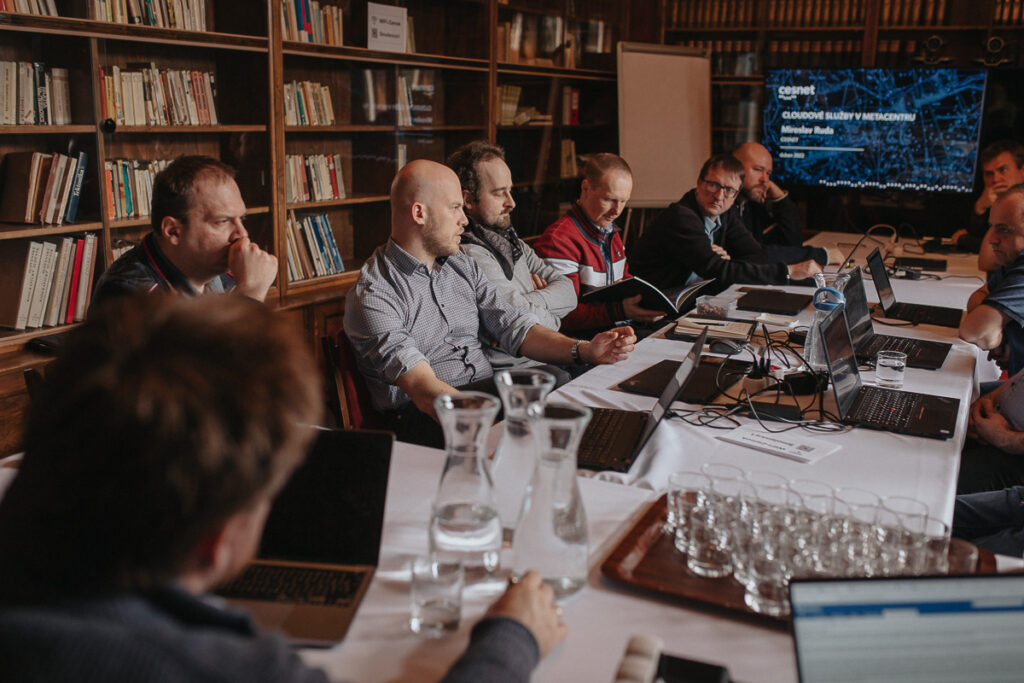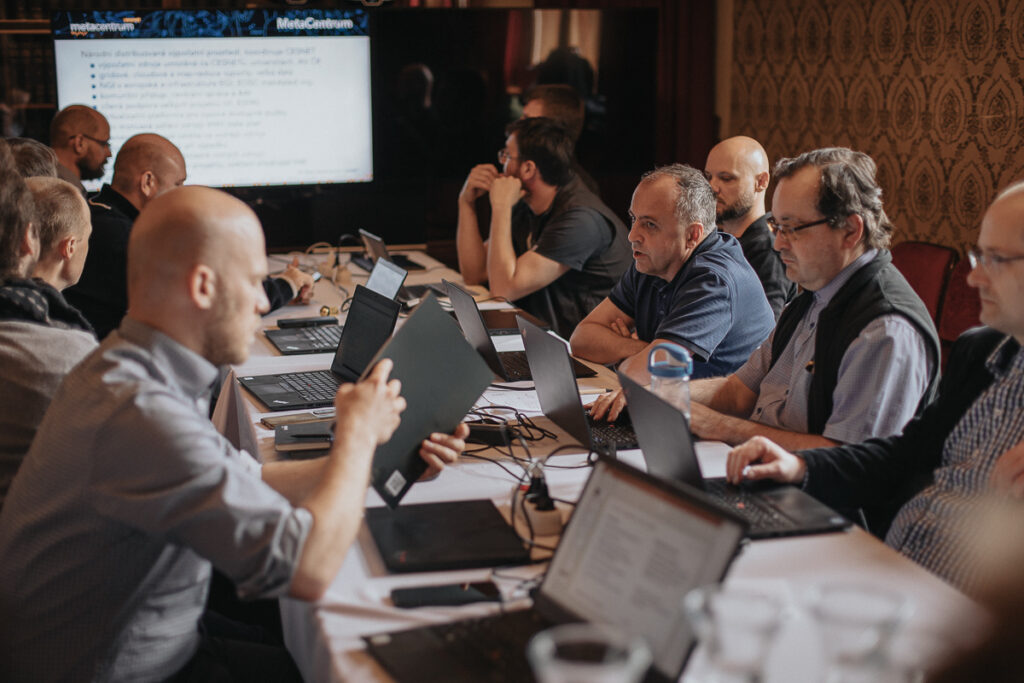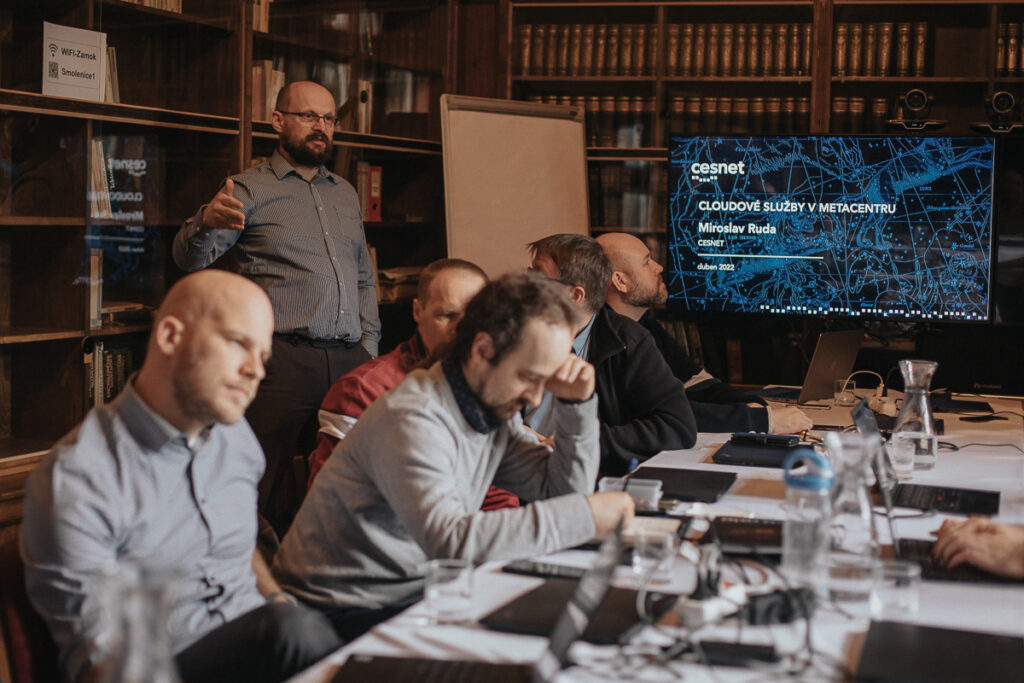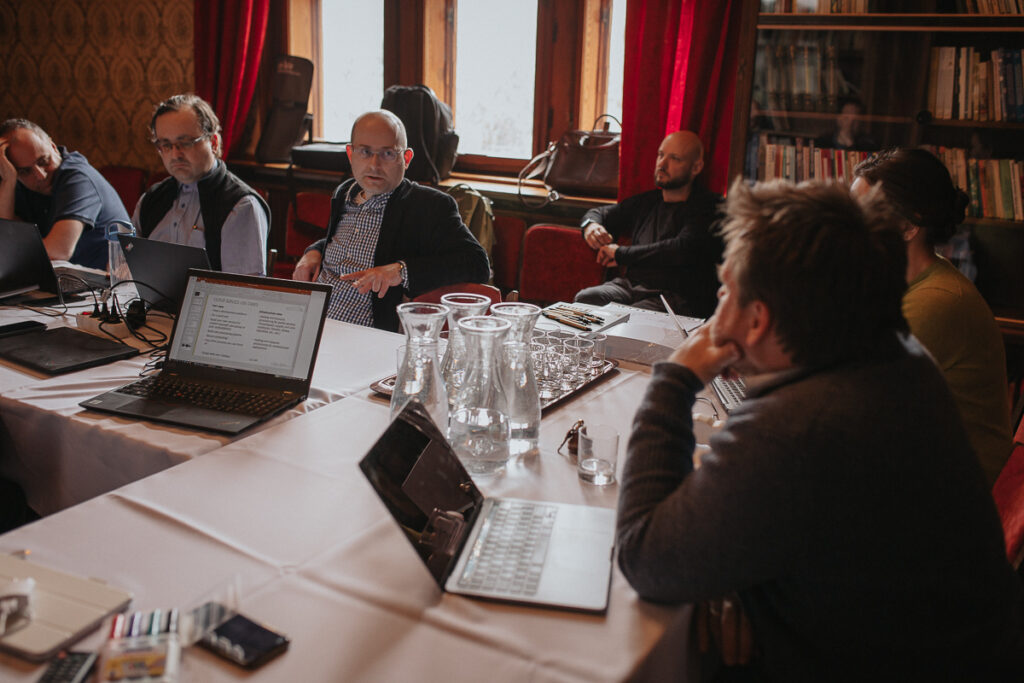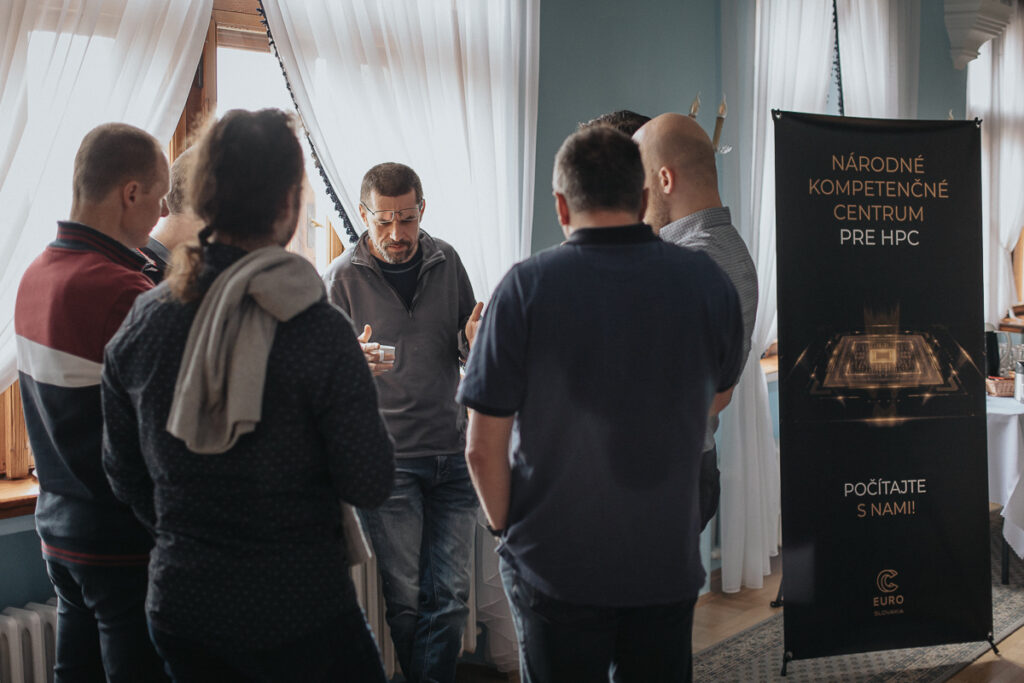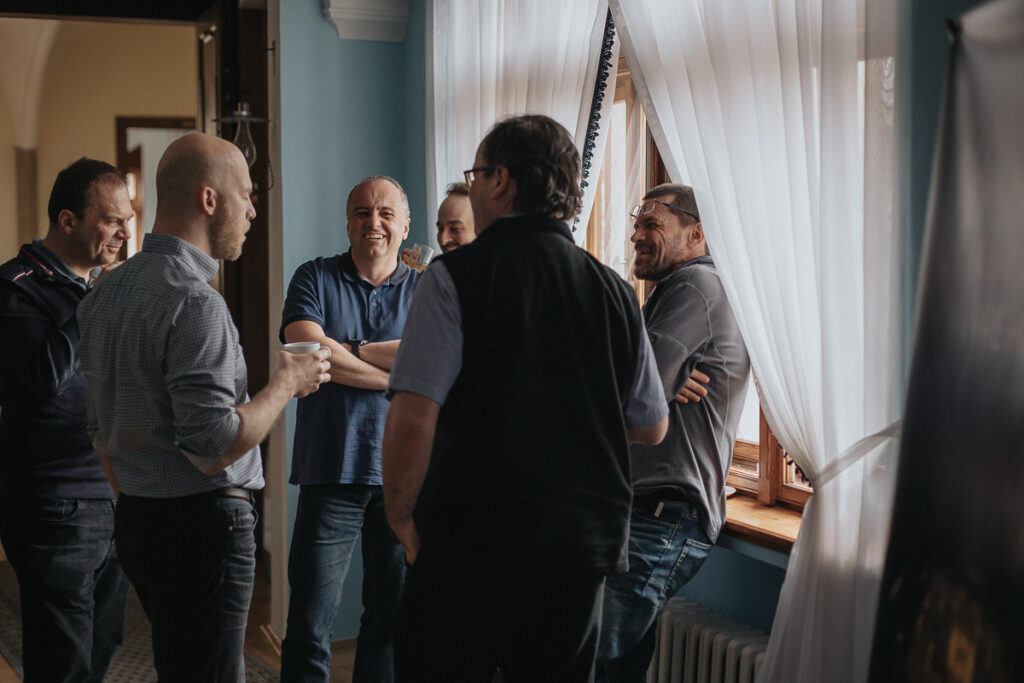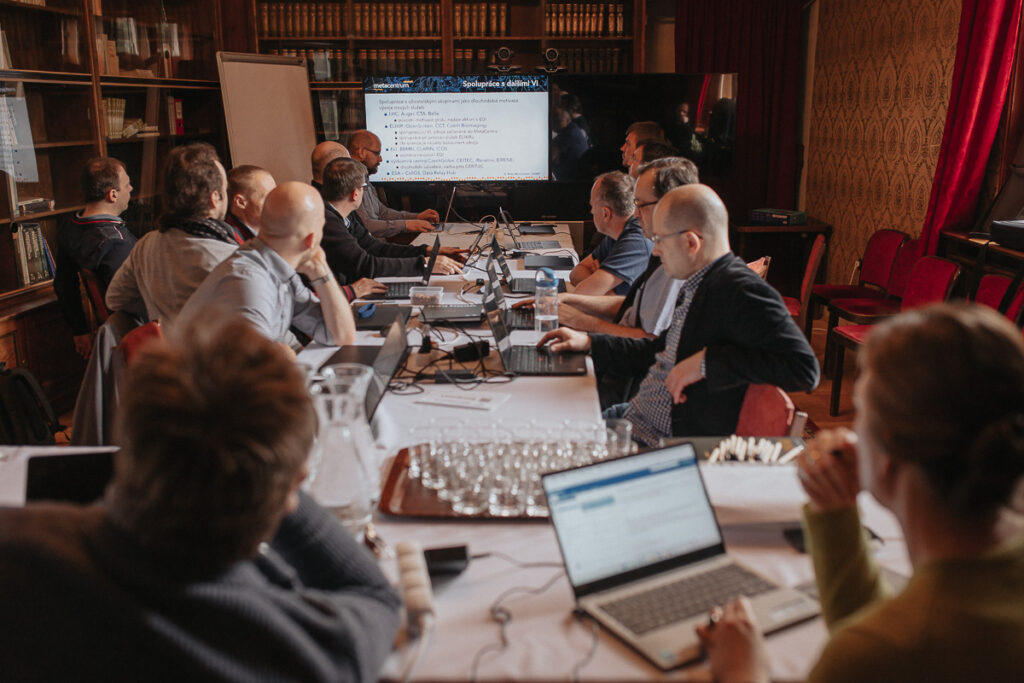Workshop: Cloud services for HPC users
A twinning workshop was organized on April 19th, 2022 with the aim of exchanging best practices and approaches to provide HPC cloud services to users from academia and industry. The workshop took place in Smolenice, Slovakia.
eINFRA and experience from the Czech Republic
Experts from CESNETwere invited to share their experiences with both NCCs in this area. CESNET is an association of universities of the Czech Republic and the Czech Academy of Sciences. It operates and develops the national e-infrastructure for science, research and education which encompasses a computer network, computational grids, data storage and collaborative environment. During the workshop, representatives of the CESNET presented such topics as:
M. Ruda: Introduction, CESNET and Metacentrum: large-scale distributed computing infrastructure and services.
D. Antoš: CESNET and Metacentrum: operation and development of data storage as a part of the national infrastructure for science and research.
Cloud services as an (un)necessary part of the HPC provider portfolio – is it profitable?
Branislav Jansík from IT4Innovations and the head of the Czech competence center Tomáš Karásek presented the requirements of users for access to cloud services. It is the motivation, requirements and expectations of users, as well as the benefits and barriers from the point of view of the HPC service provider, have been the subject of a longer discussion. Participants also debated alternative platforms, "easy-access" services, microservice, HPC "market".
Both National Competence Centers plan to integrate HPC cloud services into their portfolios using the open-source platforms OpenNebula and OpenStack. CESNET representatives who have experience with both tools shared their benefits and technical support options.
The more general debate concerned in particular the issue of systematic and long-term support for the development and operation of HPC systems as a necessary component of the national research infrastructure.
 BeeGFS in Practice — Parallel File Systems for HPC, AI and Data-Intensive Workloads 6 Feb - This webinar introduces BeeGFS, a leading parallel file system designed to support demanding HPC, AI, and data-intensive workloads. Experts from ThinkParQ will explain how parallel file systems work, how BeeGFS is architected, and how it is used in practice across academic, research, and industrial environments.
BeeGFS in Practice — Parallel File Systems for HPC, AI and Data-Intensive Workloads 6 Feb - This webinar introduces BeeGFS, a leading parallel file system designed to support demanding HPC, AI, and data-intensive workloads. Experts from ThinkParQ will explain how parallel file systems work, how BeeGFS is architected, and how it is used in practice across academic, research, and industrial environments.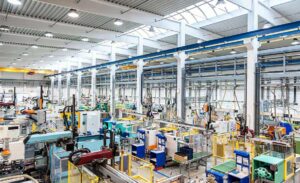 When a production line knows what will happen in 10 minutes 5 Feb - Every disruption on a production line creates stress. Machines stop, people wait, production slows down, and decisions must be made under pressure. In the food industry—especially in the production of filled pasta products, where the process follows a strictly sequential set of technological steps—one unexpected issue at the end of the line can bring the entire production flow to a halt. But what if the production line could warn in advance that a problem will occur in a few minutes? Or help decide, already during a shift, whether it still makes sense to plan packaging later the same day? These were exactly the questions that stood at the beginning of a research collaboration that brought together industrial data, artificial intelligence, and supercomputing power.
When a production line knows what will happen in 10 minutes 5 Feb - Every disruption on a production line creates stress. Machines stop, people wait, production slows down, and decisions must be made under pressure. In the food industry—especially in the production of filled pasta products, where the process follows a strictly sequential set of technological steps—one unexpected issue at the end of the line can bring the entire production flow to a halt. But what if the production line could warn in advance that a problem will occur in a few minutes? Or help decide, already during a shift, whether it still makes sense to plan packaging later the same day? These were exactly the questions that stood at the beginning of a research collaboration that brought together industrial data, artificial intelligence, and supercomputing power. Who Owns AI Inside an Organisation? — Operational Responsibility 5 Feb - This webinar focuses on how organisations can define clear operational responsibility and ownership of AI systems in a proportionate and workable way. Drawing on hands-on experience in data protection, AI governance, and compliance, Petra Fernandes will explore governance approaches that work in practice for both SMEs and larger organisations. The session will highlight internal processes that help organisations stay in control of their AI systems over time, without creating unnecessary administrative burden.
Who Owns AI Inside an Organisation? — Operational Responsibility 5 Feb - This webinar focuses on how organisations can define clear operational responsibility and ownership of AI systems in a proportionate and workable way. Drawing on hands-on experience in data protection, AI governance, and compliance, Petra Fernandes will explore governance approaches that work in practice for both SMEs and larger organisations. The session will highlight internal processes that help organisations stay in control of their AI systems over time, without creating unnecessary administrative burden.
